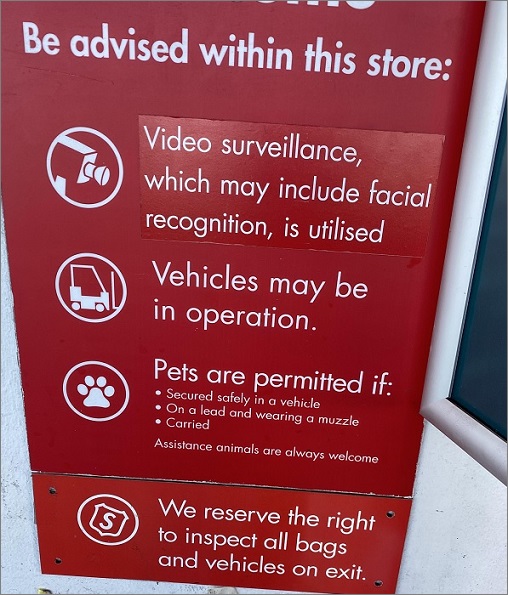Hardware store chain Bunnings has defended its use of facial recognition to monitor customers in-store following revelations in June from consumer group Choice that three major Australian retailers were capturing biometric data of customers without their express consent.
In an email exchange with Electronic Frontiers Australia (EFA) chair Justin Warren, published on the EFA’s website, the Bunnings Privacy Team said the company is “comfortable” that its use of facial recognition is “undertaken in accordance with the requirements of the Privacy Act”.
“This consideration has extended to reviewing the [Office of the Autralian Privacy Commissioner] OAIC’s previous determinations regarding other businesses’ use of facial recognition technology for other purposes,” Bunnings said in reference to the OAIC’s finding that convenience store chain 7-Eleven had wrongfully collected faceprints of customers 1.6 million times.
Bunnings explained how facial recognition software attached to CCTV systems is used to enforce bans on customers.
It said only the facial images of targets are stored by the system to make sure that, if a banned individual walks into a store, the CCTV cameras can immediately notify staff or security.
“The facial recognition technology checks for matches against these uploaded images, and where there isn’t a match then no action occurs,” Bunnings said.
“No data relating to anyone other than these uploaded images are stored in the system.”
In his post, Warren said Bunnings was missing the point and that what it was doing was comparable to taking a fingerprint of every customer as they enter the store and checking it against a file of previous fingerprints.
“The fact they then throw away that piece of paper isn’t the problem, it’s that they took the customer’s fingerprints in the first place,” he wrote.
“In fact, what Bunnings is doing is worse because the fingerprints are created surreptitiously and without explicit customer consent.”
Shortly after the original Choice report, a Redditor posted a photo of a sign outside a Bunnings in Perth which appears to have been updated with a sticker that says “video surveillance, which may include facial recognition, is utilised” in the store.

Sign outside a Bunnings updated to include a message about facial recognition. Image: Reddit
Meanwhile, white goods and electronics store the Good Guys has decided it will stop trialling the use of controversial facial recognition technology.
In a statement to Reuters, Good Guys said it will "pause the trial of the upgraded security system with the optional facial recognition technology being conducted in two of its Melbourne stores".
The company added it would wait for "clarification from the OAIC" before going ahead with its facial recognition trial.
Choice submitted a formal complaint to the OAIC this week, detailing how the retailers may have breached the Australian Privacy Act through their use of facial recognition.
Specifically, it said the retailers have broken Australian Privacy Principles 1, 3, and 5 which relate to the companies’ privacy policies, the reasonable collection of sensitive personal information, and obtaining consent from people whose faceprints were gathered.
“Choice is concerned that the retailers’ practices related to their use of facial recognition technology pose significant risks to individuals,” Amy Pereira, Choice’s senior campaigns and policy advisor, said in the complaint.
“The social and economic risks include invasion of privacy, misidentification, discrimination, profiling and exclusion, as well as vulnerability to cybercrime through data breaches and identity theft."
The OAIC is currently reviewing Choice’s complaint.






